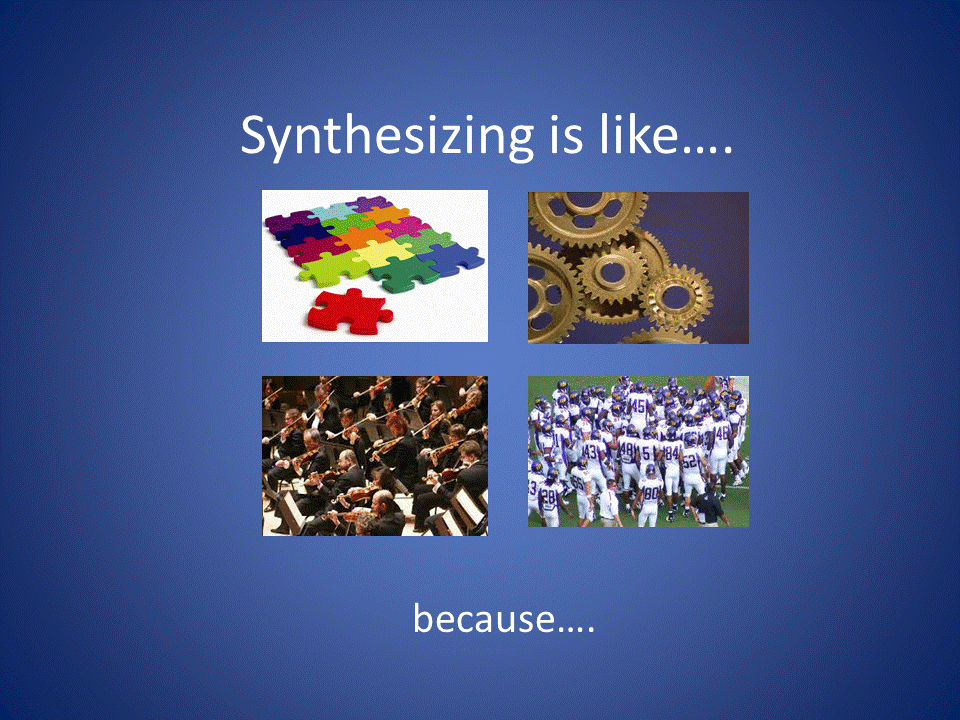- Do Now - Start New DIRT Entry
- Independently read your novel for 10 minutes.
- Answer Reader Response - 5 minutes
- Select one of the following reading strategies and respond...
- - Make a connection (text to text, text to self, text to world)
- - Visualize a part of your novel and describe using imagery.
- - Ask a question to clarify your understanding of a part of your novel.
- - Determine/Explain why a part of your novel is important.
- - Make an Inference (logical conclusion) or a Prediction about your novel.
- - Synthesize (put it together)several ideas to create an original idea about your novel.
- Share Out - Be prepared to share your Reader Response for a participation grade.
- "Hire" Time Keepers
- Learning Target - How can you use a class-created rubric to evaluate your Literary Letter?
- Mini-lesson - Demonstration of how to use a rubric to evaluate a piece of writing.
- Guided Practice - Using the class rubric, evaluate the Literary Letter of another person in the class. Your grade today will depend on staying on task and the accuracy of your evaluation.
- Assessment - Once you receive your Literary Letter back from a peer, re-evaluate your Literary Letter to check the accuracy of your peer's evaluation. Show your completed rubric and letter to a teacher for a spot-check. Return Literary Letter and Rubric to your class folder.
- 3-Week Grades and Missing Work Reports
- Homework: Study Vocabulary List V for quiz on Friday!
TUESDAY - Single Period - Class Cancelled due to Weather
WEDNESDAY - Double Period
- Do Now 1 - Get out your Literary Letter
- Timekeepers: Remember to end class on time.
- Learning Target I - How to make revisions that improve your grades!
- Mini-lesson - Demonstration of revision process.
- Guided Practice - Using the feedback on your rubric from your peer reviewer, re-write your Literary Letter making sure to revise and fix any areas in which you received a 3 or lower!
- Assessment - Hand in your Literary Letter final draft with the rubric stapled to it for a classwork grade worth 100 points.
- Done? Select an activity from your independent menu. Recommendation: Study vocabulary words using flashcards.
- Second Period...
- Entry Title - Writing Awesome Vocabulary Sentences
- 1. Study word meaning and family.
- 2. Read word in context.
- 3. Write a draft sentence.
- 4. Read it "out loud" to yourself.
- 5. Revise your sentence.
- Learning Target II - How to write excellent vocabulary word sentences.
- Mini-lesson - Notes and demonstration on writing awesome vocabulary word sentence.
- Guided Practice - Sentence Cards
- 1. On your own or with a partner, use two vocabulary words from List V in one sentence that shows you understand the meaning of the word.
- 2. Write the sentence on an index card for a classwork grade. Legibility, grammar and punctuation all count!
- Assessment - Share Out - Everyone will present their sentence on the Elmo for a classwork grade worth 100 points.
- Homework: Study Vocabulary List V for quiz on Friday!
THURSDAY - Single Period
- Do Now - THINK
- Entry Title - Unscramble This!
- Directions: Unscramble the following Vocabulary List V words in your composition book.
- 1. tevodec
- 2. bidsuse
- 3. nossatire
- Learning Target - Reviewing for tomorrow's vocabulary test.
- Mini-lesson - how to play around the room and back.
- Guided Practice - Teams will play Around the Room and Back for raffle tickets for next raffle on Valentine's Day!
- Assessment - Game play results.
- Homework: Study Vocabulary List V for quiz tomorrow!
FRIDAY - Double Period
- Do Now - Start New DIRT Entry
- Independently read your novel for 10 minutes.
- Answer Reader Response - 5 minutes
- Select one of the following reading strategies and respond...
- - Make a connection (text to text, text to self, text to world)
- - Visualize a part of your novel and describe using imagery.
- - Ask a question to clarify your understanding of a part of your novel.
- - Determine/Explain why a part of your novel is important.
- - Make an Inference (logical conclusion) or a Prediction about your novel.
- - Synthesize (put it together)several ideas to create an original idea about your novel.
- Learning Targets - 1) What is the skill of literary synthesis? 2) Do you know all the vocabulary words on List V?
- Read Aloud/Think Aloud - Bio of Joyce McDonald
- - What were the important elements of the biography?
- - What were the important parts of her life? How do you think they impacted her writing?
- - How do aspects of Swallowing Stones compare to her life?
- Whole-Class Instruction - Synthesizing
- 1. Bringing together things that already exist to create something new that is also useful.
- 2. A good reader will use several reading strategies to synthesize information in a text (connections, important ideas prior knowledge, creating images, and inferring).
- 3. When composing a literary synthesis, the reader is actually forming something new.
- 4. Synthesizing is like a...
Teach types of questions
How to write questions

No comments:
Post a Comment